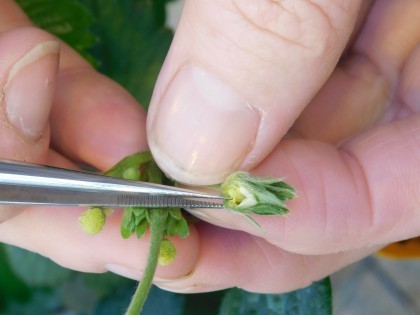United Kingdom
25 Oct 2021

The views of the UK soft fruit industry, from growers to retailers, could be critical in determining its future, urges NIAB and the James Hutton Institute.
The two research organisations are developing a business case for the establishment of a Soft Fruit Genetic Improvement Network, following in the footsteps of some major agricultural crops with a co-ordinated research approach to pre-breeding genetics of key traits and new breeding tools.
As part of the scoping study, NIAB and James Hutton Institute are encouraging all members of the soft fruit industry to complete a short, online questionnaire that will provide information to help determine the case for a Soft Fruit GIN. The 5-10 minute survey, open until 31st October 2021, is available at niab.com/FruitGIN.
Professor Dan Sargent, Head of Genetics Genomics and Breeding at NIAB EMR, highlights that Defra-funded Genetic Improvement Networks, known as GINs, are already successfully established for pulses, oilseed rape, wheat and field vegetables. They have provided a key link between industry and academia to ensure that genetic research addresses the needs of the industry, and tackle some of the longer-term issues through breeding efforts. But there is currently no GIN in place that addresses the needs of the soft fruit industry.
“Co-ordinated research would include the development and deployment of molecular markers for pest and disease resistance, high throughput phenotyping and genotyping, accurate predictive models for gene function and epistasis, and the use of gene editing technologies such as CRISPR/Cas9 for germplasm development.
“This co-ordinated approach would benefit private and public breeding programmes by generating new knowledge and tools to speed up breeding, which in turn would provide growers with new varieties that have better fruit quality traits, and more importantly, can be grown more sustainably,” finishes Professor Sargent.